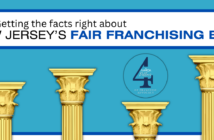The effort to drive bookings in a tough economy doesn’t have to feel like a tug of war
The lodging industry has been greatly impacted by the current state of the economy due to the pandemic. Ours has been on the front lines of this challenge since the outset and may be among the last to fully recover. At the start of the pandemic, our industry saw a loss of more than 4.8 billion jobs, so hoteliers looked to cut costs and reached out to lending institutions for support. This was the best course of action that many seasoned hoteliers took to help secure their properties’ best interests, as many lenders set in play plans to not only support the hotelier but looked to the government for support in the form of economic relief, such as the Paycheck Protection Program that helped hoteliers during this economic downturn. Hoteliers also reached out to their brands for support, fee relief, and advice about the best course of action to take. Many scrambled to find new and innovative ways to look for alternative sources of revenue and effective ways to keep costs down.
In a conversation with a franchisee who has a large portfolio, the relevance of working with online travel agencies came into question. He felt that during the downturn he saw very little revenue and support come in from OTAs, stating that many had laid off staff and were more difficult to work with than in the past. He sees OTAs as a monopoly on reservations that he must pay for at a ridiculous margin, and the financial burden on the cost of working with OTAs isn’t worth his time. He questioned their effectiveness in the current state of the economy and expressed worry that the new variant will continue to have a negative impact on his properties.
These views on OTAs aren’t unique within our industry, but working with them could increase a hotel’s bookings and improve a property’s online presence.
DEVIL’S ADVOCATE
Simply put, guests are highly likely to use an OTA, especially since the Delta variant came into play as OTAs have spent a great deal of time rescheduling bookings and updating guests of current travel policies and restrictions. A bonus that goes along with working with an OTA is that a listing would not only attach to the OTA but also to other affiliate sites. Many OTAs have affiliate marketing programs that are designed to increase a hotel’s reach to channel more bookings. Generally, affiliate programs produce 15% to 30% of all advertised sales, which is designed to target other markets travelers otherwise might not have seen. But, this passive income of boosted business comes with a price, as many sites collect commissions on the sales they generate.
To understand how affiliate marketing works, you must understand that this type of marketing isn’t isolated to businesses that deal strictly within the lodging industry. The elements of affiliate marketing start with the advertiser (i.e., the hotelier), then will involve the publisher. This may include an OTA affiliate site, a blogger, a cost-per-action payout site that advertises your property to gain exposure through banners or widgets but generates revenue per click.
Affiliate marketing is built on the idea of creating large-scale impressions to reach as many potential guests as possible. Obviously, OTA sites such as Booking.com, for example, can hold their own but use affiliate programs to target a larger audience by reaching out to a more diverse group of potential guests. Bloggers and YouTubers who already have a large following, equal to high website traffic, will take advantage of their already-loyal followers to help them generate more revenue by helping you sell rooms at your hotel.
So why would you want to pursue this, and how can you go about it on your own? Simply put, you can generate more direct bookings by expanding to a wider, more diverse audience. By networking with other companies, you may be able to generate passive revenue by becoming an affiliate yourself, as 81% of brands and 84% of publishers leverage the power of affiliate marketing in the U.S. The trend has been increasing steadily by 10.1% annually, bringing affiliate-marketing revenue to $6.8 billion by 2020.
If, for example, your hotel is in a primary market and spring break is a busy time of year for you, partnering with a spring break blogger who can add a backlink to your hotel for booking under a special rate in exchange for a commission can help you drive more direct bookings. If you have your own site that supports a booking engine and has a good ranking, you may reach out to other businesses in your area that may include a backlink for guests that visit your site to patronize their business in exchange for a margin of the cost of their services.
As mentioned earlier in this article, there is much debate about the financial implications of the current hotel-OTA relationship, and that’s more than understandable. However, don’t be too eager to wash your hands of the process, especially as those partnerships can drive business in ways that a hotel cannot accomplish alone.





